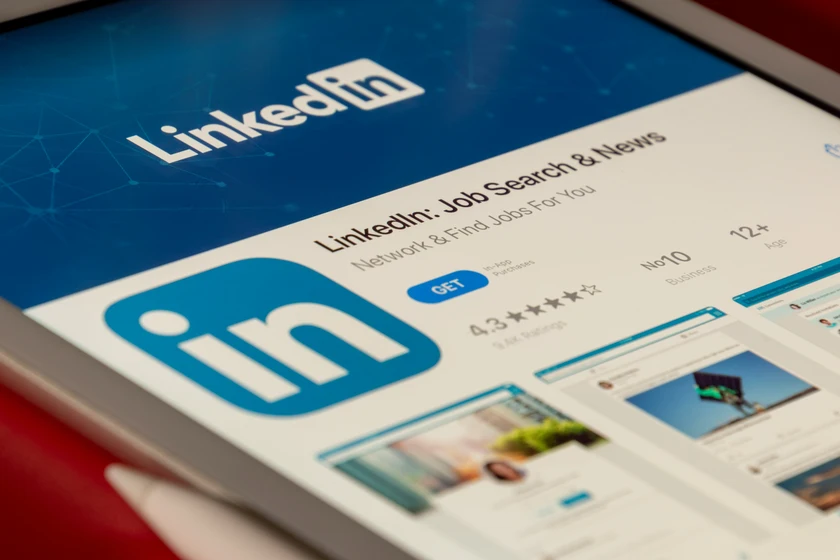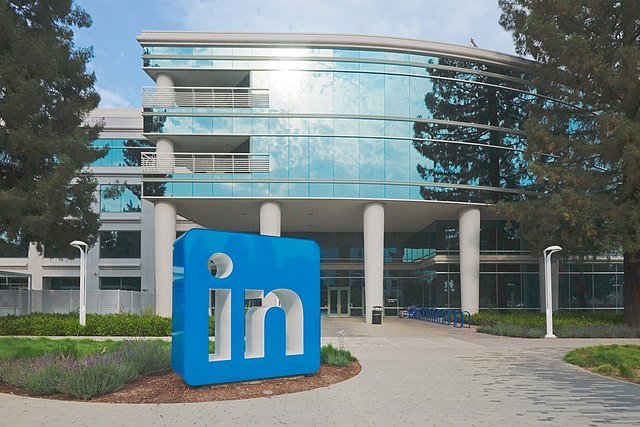- David Mason
Google Ads vs Facebook Ads: A Comparison by Crisalide Agency
It is undeniable that the concept of online advertising plays a vital role in the growth of businesses around the globe in our current society.
The right advertising medium can be a game changer given the access, the visit, and, of course, the success of a marketing drive.
Let’s analyze which is the best platform to advertise your business in terms of Google ads vs Facebook ads.
“Never write an advertisement which you wouldn’t want your own family to read. You wouldn’t tell lies to your own wife. Don’t tell them to mine. Do as you would be done by. If you tell lies about a product, you will be found out…” – David Ogilvy
Among the many options available, two titans stand out:
Google AdWords and Facebook Ads.
What are we talking about in this article?
Toggle- An Overview of Online Advertising
- Google Ads vs Facebook Ads: Which is Right for You?
- An Introduction to Google Ads vs Facebook Ads
- Explanation of Google Ads
- Explanation of Facebook Ads
- Cost Comparison: Google Ads Vs Facebook Ads
- CPC and CPM
- Comparison of Dropshipping Businesses
- General Business Type Recommendations
- Pros and Cons
- Advantages and Disadvantages of Facebook Ads
- Global Trends and Forecast 2024
- Predicted Trends for 2024
- Courses and Learning Resources
- A Brief Description of the Top Offered Sections and Programs for Facebook Advertising
- Recommendations for Learning Resources
- Conclusion
An Overview of Online Advertising
The use of the internet to display advertisements has shifted conventional selling models through advertising to another level.
In the hearts of ambitious start-ups and corporations around the world, the web environment is as effective a means for reaching customers as it can be.
Risks associated with selecting an inappropriate platform
Contrary to choosing between wrenches or drills, it takes some critique to decide which advertising medium is best suited for the task.
It is the process of choosing the most effective method and channels for conveying the message to achieve a large return on investment rather than a failed campaign resulting in increased wasting of money and other resources.
Google Ads vs Facebook Ads: Which is Right for You?
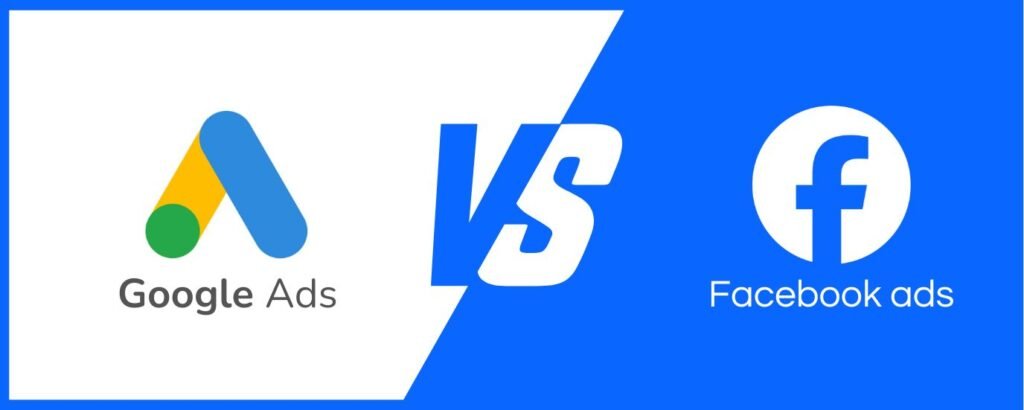
Google Ads and Facebook Ads are two toppleless monarchs in the kingdom of online advertising.
For example, Facebook has different elements and multiple targeting opportunities plus unique ad types that are appropriate for every need and purpose of the businessman.
An Introduction to Google Ads vs Facebook Ads
Let’s compare the most significant digital advertising platforms: Pay-Per-Click Advertising: Google AdWords vs. Facebook Ads.
Here we will give a concrete and useful cross-sectional review of Google Ads and Facebook Ads including basic pros and cons of those platforms now with our practical experiences in marketing and relevancy or irrelevance to certain business models of the firm and the general marketing objectives.
Two major forms of advertising that can be seen as having many options to offer include Google Ads and Facebook Ads.
In the free-for-allosphere of online advertising, two giant companies, Google Adwords and Facebook Ads, open up two different directions for business.
Allow us to explain each social platform and its functionalities in detail.
Explanation of Google Ads

Google Ads, formerly Google AdWords is an advertising channel where Google offers its services to enable businesses to market their merchandise.
To present the paid advertisements, Google divides them into two categories: search networks and display networks that can be shown on Google’s SERPs, on partner sites, and on YouTube.
Google Ads include the common styles of the ads, examples being search ads, display ads, and video ads.
Search Ads
These ads accompany the results of a Google search triggered by specific queries;
this is essential because it gives businesses direct access to targeted users, thus maximizing the chances of capturing their intent.
Display Ads
Web display ads are banner-type advertisements that are placed on different websites that the Google display network covers, which give business people an opportunity to market their products or services beyond the search.
Video Ads (YouTube)
Thanks to the availability of the YouTube advertising platform, Google Ads helps businesses deliver video advertisements to a large audience, thus diversifying the potential of the platform as an entertainment and informational source.
Explanation of Facebook Ads

Facebook Ads is how organizations can place their products and services on Facebook.
It includes numerous ad types for different media created to make people respond within the scope of the social media environment.
Concerning the news feed ads and the story ads, Facebook Ads are beneficial for businesses as they offer suitable features that help them reach their target market impeccably.
News Feed Ads
These ads pop up in users’ Facebook news feeds as premium content in the middle of other regular content, providing businesses with an opportunity to access the users as they go through their feeds.
Story Ads
A Facebook and Instagram story ad form is a type of advertisement that blends into the interface and is located in the Facebook and Instagram stories section, where the user sees bright and cheerful advertisements.
Marketplace Ads
Facebook’s Marketplace ads allow companies to advertise their products or services within the Facebook Marketplace itself for individuals who are engaged in browsing for things to purchase or sell.
Instagram Integration
Besides, since Instagram is a Facebook community, it is quite easy to advertise both in the application and take advantage of the visually focused audience, which is a function of Instagram.
In the case of instant engaging advertisers and advertisement sites including Google Ads and Facebook Ads, it is essential to understand the different factors that depict efficiency to be able to successfully and strategically target the right sites and channels for advertising by cutting through the thick end it of the cut-throat competition that is most evident in the online world.
Cost Comparison: Google Ads Vs Facebook Ads
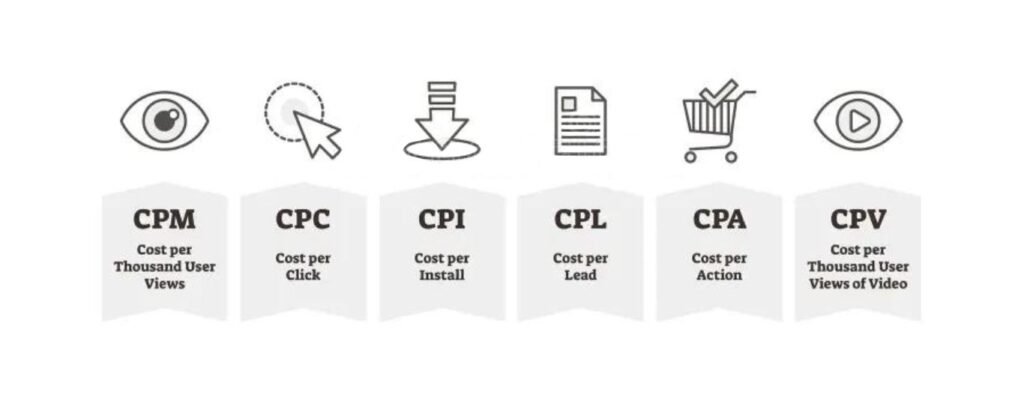
This unamalgamated cost of the various online platforms gives people an insight into the financial impacts they are likely to get when advertising through the internet.
It is time to compare the prices of Google AdWords and Facebook Ads advertising to identify which of the platforms is most affordable for businesses.
There is information on Google Ads cost structure, including cost-per-Click (CPC) and cost-per-Impression (CPM).
Google Ads allows payment options on the cost-per-click model or the cost-per-thousand-impression model, depending on the advertising goals.
Similarly, in the CPC system, the advertiser pays the publisher every time a user clicks the link to their ad, while the CPM’s system sees the advertiser paying the publisher for every thousand times the publisher’s ad is viewed by the users.
CPC and CPM
Facebook Advertising Costs or Facebook Advertising Rates
Like Facebook ads, Facebook Marketplace has both CPC and CPM price models.
Cost models can be a pay-per-click formula where an advertiser is charged for every single click (CPC) or a pay-per-impression formula where an advertiser is charged for every show of their ad (CPM).
Cost Comparison Analysis with Examples Introduction Cost analysis has been used over the years as a tool for determining the value of products from different organizations or business entities by comparing the cost of their production or service delivery.
To justify which channel is more appropriate and has a richer value proposition, it is necessary to carry out a cost analysis.
Specifically, the ratios of average CPC and CPM rates of Google Ads and Facebook Ads for different industries and ad formats can help businesses understand which is a better deal than the other.
If, on one hand, costs are relatively lower on community-based platforms, different factors influence costs on both types of platforms.
Certain attributes determine the level of cost of advertising on both Google Ads and Facebook Ads.
These include:
- Competition: Higher competition for keywords or audience segments can drive up advertising costs on both platforms.
- Targeting Options: The specificity of targeting options can affect costs, with more precise targeting often resulting in higher CPC or CPM rates.
Ad Quality: This often requires developing high-quality and relevant ads as they tend to receive more responses and may even cost less because more individuals will click on the ads.
It is therefore possible for a business to gain the best possible results in their advertising expenditure and possibly be better off using either Google Ads or Facebook Ads for their business depending on the overall goals of the enterprise.
Use Cases for Different Business Types: With advertising, different kinds of businesses have several needs and goals in communicating their product or service to the market.
Here is information on Google Ads and Facebook Ads for non-manufacturing goods selling businesses such as drop-shipping businesses and real estate businesses, as well as for other businesses.
Comparison of Dropshipping Businesses
- Google Ads
Given that Google has even the most niche audiences covered along with powerful and accurate targeting options, the businesses that are involved in drop-shipping can promote themselves to users who are actively seeking products similar to the ones that the drop-shipping businesses are selling.
The primary targeting of search ads and product listing ads (PLAs) is to reach out to the audience in a purchasing consideration moment when the business reaches out to its customers with drop-shipping service providers.
Google Display Network: With a variety of products and the availability of free tools, Remarketing campaigns can target users who have already shown their interest in the products.
Facebook Ads
Facebook offers the most robust targeting features, which made it possible for drop-shipping businesses to target a much larger audience using demographic, interest, and behavior information.
Dynamic product ads can reach users who have previously engaged with the products seen on the website without having to manually do that.
Story ads and carousel ads can feature multiple products, and a specific product increases the likelihood of patronage from potential customers.
Google Ads and Facebook Ads are both similarly suitable for real estate businesses because they will make it easy to market the businesses to the target market.
Google AdWords and Facebook Advertising can hence be used by real estate firms to market directly and/or directly to potential buyers and sellers.
These two platforms, Google Ads and Facebook Ads can easily be used by Real estate businesses to ensure that they are reaching out to their target clients.
The two platforms of online marketing, namely Google Ads and Facebook Ads, can be useful to real estate companies to target their potential clients.
- Google Ads
It is available for any form of business but is most effective for real estate businesses because it assists them in posting their ads on the top of Google where people are actively searching for properties in certain areas.
This can easily be placed in strategic positions for instance, on the websites that the user visits in a bid to find real estate and this will help build the brand and generate leads.
If the YouTube video ads are of the property listing kind, they can be helpful for clients wishing to engage in home purchases in that they provide property tours.
- Facebook Ads
The advanced targeting features of the platform allow real estate-based companies to target the audience of the social platform with details about the users, including their age, gender, keen interest, and life events such as relocating to a new home.
Fixed and scrolling banner ads and slideshow ads can present several property listings and give a brief description or highlight aspects to capture the attention of potential buyers.
Lead Ads helps capture leads within Facebook and employs the use of check-ins without incurring the need for third-party applications, hence making lead generation easier for real estate agents.
General Business Type Recommendations
While the effectiveness of Google Ads vs. Facebook Ads may vary depending on the specific goals and target audience of each business, some general recommendations include:
E-commerce Businesses
Hence, both Google Ads and Facebook Ads are useful in reaching out to particular target markets, essentially serving as the advertising medium in e-commerce, aligning with the key business objectives, and interacting with the target customers with varied intentions.
Service-Based Businesses
Facebook ads can also benefit service-oriented businesses by ensuring that any interested audience is directed to their company’s services as relevant to the services that the audience is searching for, while Google ads are also helpful in the same way.
can reach out to new clients and create leads with the help of content marketing by offering what the company provides.
Local Businesses
At first, Google Ads location targeting and local search ads are suitable for localized businesses that attempt to capture locally situated customers; on the same note, Facebook Ads offer enhanced recognition and better customer interaction with local businesses using retargeting options.
Google Ads and Facebook Ads may prove suitable for different types of businesses since advertising through search engine advertising and social media advertising means that both platforms have the potential for being used effectively by various types of businesses, provided that proper assumptions are reached and sound advertising implementation follows.
Pros and Cons
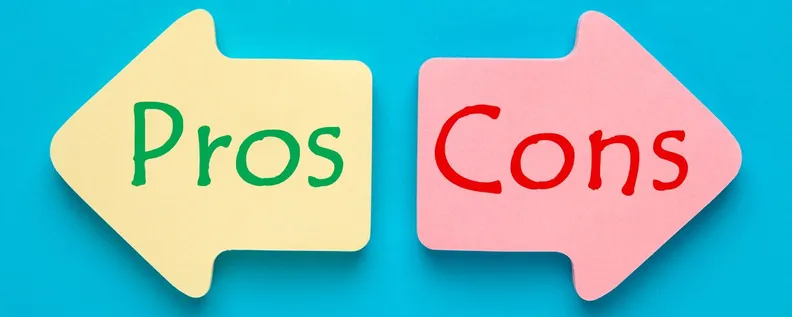
The choice of Google or Facebook ads also has merits and demerits, and it is only right to take a closer look at the different aspects and evaluate the two so that you know which platform to use in reaching the target clients.
In the next part of this article, you will find a deeper insight into how business advertisements from Google Ads and Facebook Ads are done, the advantages and disadvantages between the two popular platforms, as well as live demonstration ads for each.
Opportunities and challenges that come with advertising on Google AdWords
Pros
- High-Intent Audience: As clickable serving bit-by-bit, Google Ads is more suitable for targeting active users who are looking for specific products and services, and it can also provide an improved opportunity to generate a huge amount of leads and convert them.
- Extensive Reach: This means that during the search, Google Ads also offers an unmeasurable form of ad exposure, not only from the search result pages but also from other websites associated with Google, such as YouTube.
- Ad Performance Tracking: Nonetheless, Google Ads has track and monitor features that assist an advertiser in evaluating the campaign and making changes for optimal effectiveness.
Cons
Higher Costs: This is a free tool that allows business organizations to monitor the keywords, thus revealing the fact that competition in keywords can push up the price of ads in Google Ads beyond the reach of so many organizations struggling with small budgets.
Complexity: Like with most Google products, it takes much time and energy to effectively manage ad campaigns; the system is truly designed for complicated and potent tools that can either benefit or confuse the untrained user.
Ad Blindness: In a way, people can become oblivious to ads and may end up not noticing sponsored listings, especially if they are placed on a search results page where genuine ads are partly mixed with organic ones.
Example: A small e-commerce store used AdWords as its advertising campaign, which generated a lot of sales by focusing purely on search advertisements. However the hikes in the channel exposed the store to higher CPC rates due to competition and thus affected its profit line.
Advantages and Disadvantages of Facebook Ads
Pros
- Precise Targeting: Amongst the features that make Facebook ads stand out are the targeting opportunities that enable ads to be shown to specific people depending on their demography, interests, and behaviors.
Visual and Engaging Ad Formats: Through carousel ads, video ads, and story ads, Facebook Ads offers visually engaging ad types that want users to focus on the display.
Social Proof and Trust: Business promotions that are displayed within users’ news feeds apply social proof, making them more convincing and trustworthy to those using the platform.
Cons
- Lower Conversion Rates: More often than not, Facebook ads diverge to a lesser degree from Google ads when it comes to conversion, especially for direct response advertising strategies.
Ad Fatigue: The ‘fatigue effect’ could set in if the same or unrelated ads are run continuously, thus reducing the overall response and effectiveness of the ads.
Privacy Concerns: People have come to know many times that Facebook misuses and sells its users’ data, and that has also caused hesitation among the users, which may impact the trust factor and the ad relevance.
Example: Chef Lucio’s restaurant got good results from using Facebook ads to advertise events and special offers to its audiences. Nevertheless, after constant exposure to the ads, fatigue set in, and the CPM rose steadily as the response rate decreased.
Admittedly, it is possible to incorporate the advantages and disadvantages of Google Ads and Facebook Ads into a specific set of goals and objectives to achieve greater effectiveness in selecting target audiences and increasing profits.
Global Trends and Forecast 2024

This is particularly relevant to Google Ads vs. Facebook Ads, which are two of the most popular forms of online advertising available today, and as the technology for online advertising grows, so too do the trends and foreseen predictions for the future of Google Ads and Facebook Ads.
Now let’s imagine and forecast all the possible tendencies that could influence the advertising future and the forecasted scenarios for 2024.
In recent years, both Google Ads and Facebook Ads have witnessed several notable trends:
- Video Dominance: With the active growth of the platform, the share of video content has significantly increased, especially promotional videos that provide higher results in terms of CTR and conversion.
- AI and automation: Continued innovation and the use of both AI and machine learning have made ad targeting and optimization much more efficient as a method of advertising.
- Privacy Emphasis: Google and Facebook have raised the level of consumer privacy and protection of personal information by providing consumer control measures to allow the management of user data.
Predicted Trends for 2024
Looking ahead to 2024, several trends are expected to shape the landscape of online advertising:
Here are the tendencies that will influence the world of Internet advertising further, as per the period of 2024:
- AI-Powered Optimization: The sophistication of ad optimizers will increase through better machine learning, and it will enable the advertiser to create more highly targeted, and indeed localized, ‘boutique’ TV ad campaigns based, for instance, on liking and disliking TV viewers.
- Augmented Reality (AR) Ads: The virtual technology of augmented reality is also expected to shift the advertising market to an advanced level so that potential consumers can see the products fully before opting to go out and purchase them.
- Voice Search Integration: As voice-enabled devices rise to higher levels, advertisers need to make changes to incorporate forms of advertising into them, as they are likely to contain conversational keywords that will be used for voice search queries.
Challenges That Implement Some of These Trends May Pose to Advertising Strategies
These emerging trends are poised to impact advertising strategies in several ways. All of these emerging trends are likely to revolutionize advertising strategies in the following ways:
- Greater Personalization: That means that whatever message is wanted in the advertisement content will have to be customized with the help of artificial intelligence and data analytics to enable the targeted population to understand the intended message.
- Enhanced Engagement: Gather data on aspects such as augmented reality ads, which are expected to generate higher interaction with consumers, and in achieving this, it will be easier for the brand to form a solid bond with those consumers.
- Adaptation to New Technologies: Advertisers consequently have to learn about trends such as AR to ensure they retain relevance in the market, as well as fine-tune voice search optimization.
Hence, it becomes important for advertisers to cultivate this kind of understanding of the trends in the current social platform for interaction and use this conviction to manipulate the trends of the future of social media.
Maximize the opportunities of pay-per-click and news advertising in the dynamically changing environment of the internet.
Courses and Learning Resources
Targeted individuals, especially those willing to learn the fluidity of Google Ads and Facebook Ads, can access numerous readily available online courses and certifications for advanced learning in online advertising.
Google Ads and its associated platforms offer many common classes and certifications to those interested in its uses.
Training resources for Google are available through Skill Shop, a training platform that includes all the necessary information and courses regarding Google Ads.
Moreover, on the Internet, one can find courses offered by services such as Coursera, where courses are created by various universities and industry experts to give in-depth knowledge and techniques to learners to manage Google Ads effectively.
A Brief Description of the Top Offered Sections and Programs for Facebook Advertising
Facebook Blueprint is the place where anyone would like to learn about Facebook advertising;
it has courses and certification programs that aim to prepare advertisers on the best practices of using this tool in developing effective advertising campaigns.
Other online learning platforms, including Demy, include Facebook ads in their catalog, where learners can study frameworks for refined targeting and advanced ad promotion principles.
Recommendations for Learning Resources
You can also attend other courses and get proper certification along with the knowledge of Google Ads vs. Facebook Ads, but in parallel, you can use other sources to enhance your knowledge.
Blogs, forums, and YouTube channels associated with digital marketing offer significant knowledge of fundamentals, tips, and practices from different experts in digital marketing.
This is why it is crucial to get acquainted with trends and tendencies frequent in the rapidly evolving field of Internet advertising.
Conclusion
In conclusion, the comparative analysis of Google Ads vs. Facebook Ads states the necessity of considering the different strong and weak points of each advertising platform.
Google Ads is a versatile ad network with very targeted user acquisition potential since users who are interested in some kind of goods or services are more likely to be searching for them.
While, as we know, Facebook ads are more effective in terms of social advertising, they have numerous features for targeting certain groups of users and making them aware of a specific brand.
These aspects are the goals of the ad, choosing the target audience, and the distribution of spending on the promotion of the business.
However, for the first time, for more specific and effective traffic and leads, Facebook ads might be the best solution.
However, if a website owner needs sustainable organic traffic and expects users to actively seek out a site, Google Ads may be of more use.
Should you need more information, experience, or tips as to how you could select the best advertising channel for your company, you might choose to take an online course, use message boards, or seek advice from a marketing specialist.
Choose carefully who to advertise with to get value for your money as well as to meet the goals of your company or organization.

